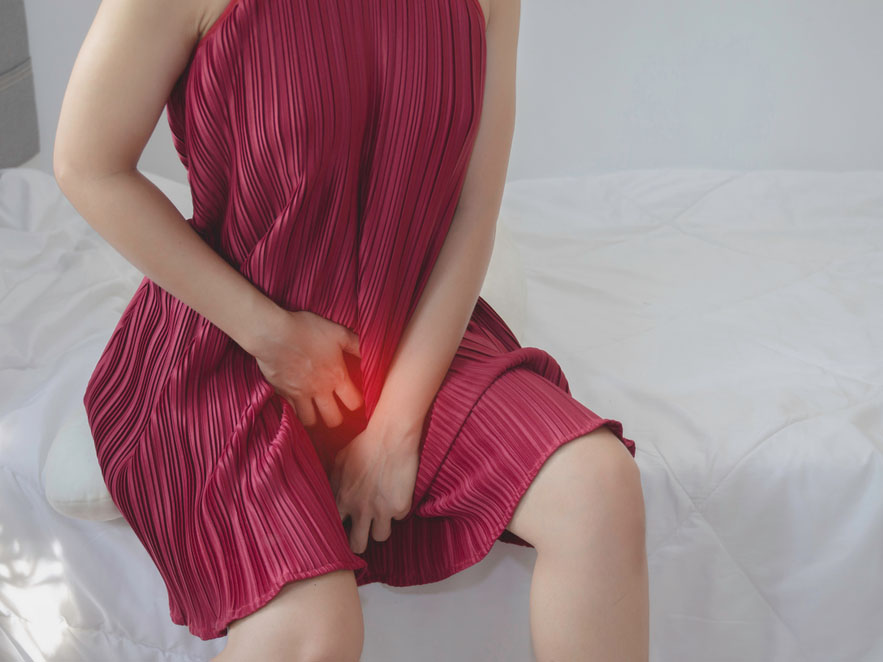Contents
Vaginal dryness is usually temporary and not a cause for concern. It’s a common side effect with many contributing factors.
Usually, the walls of the vagina stay lubricated with a thin layer of clear fluid. The hormone estrogen helps maintain that fluid and keeps the lining of your vagina healthy, thick, and elastic.
It may seem like a minor irritation. But the lack of vaginal moisture can have a significant impact on your sex life. Fortunately, several treatments are available to relieve vaginal dryness.
Vaginal dryness Causes
Vaginal dryness is a common symptom of menopause — and close to one out of every three women deals with it while going through “the change.” It becomes even more common afterwards. It also makes the vagina thinner and less elastic. This is called vaginal atrophy.

Estrogen levels can also drop because of:
- Childbirth and breastfeeding
- Surgical removal of the ovaries
- Radiation or chemotherapy treatment for cancer
- Anti-estrogen medications used to treat uterine fibroids or endometriosis
Other causes of vaginal dryness include:
- Sjögren’s syndrome (an autoimmune disorder that attacks cells in the body that produce moisture)
- You’re taking an antihistamine
- Certain antidepressants
- You’re taking antidepressants
- Allergy and cold medications
- You smoke cigarettes
- Douching
- You’re stressed
- You’re allergic to one of your products
- You’ve been drinking alcohol
- Not enough foreplay before sex
- You use a douche
- You just started or finished your period
- You’re taking the birth control pill
- You’re pregnant
- You’re taking asthma medications
- You’re approaching menopause
- You just gave birth
No matter what the cause, vaginal dryness can be extremely uncomfortable. It can lead to itching, burning, and painful intercourse.
Vaginal dryness Symptoms
Vaginal dryness is common but treatable and can happen at any age. Symptoms may include a burning sensation, vaginal discomfort or itching, abnormal vaginal discharge, or pain during sex or masturbation.
There can be several reasons for vaginal dryness, both psychological and physiological whether you’re drier than you would like to be during sexual activity or are experiencing more general discomfort due to vaginal dryness.
Vaginal dryness Diagnosis
Any burning, itching, or discomfort in the area is worth a call to your doctor or gynaecologist. They’ll ask about your past health and find out how long you’ve had symptoms and what seems to make them worse or better.

Your doctor will do a pelvic exam, checking your vagina for any thinning or redness. The review will help rule out other possible causes for your discomfort, including a vaginal or urinary tract infection. The doctor may also remove cells from your vaginal wall or cervix for a Pap test.
Vaginal dryness treatments
If you’re experiencing dryness since being on medication or a form of hormonal birth control: talk to your healthcare provider about trying another one that’s a better fit for your body.
If you suspect low estrogen levels could cause your dryness, there are several treatment options: vaginal moisturisers or lubricants, local vaginal estrogen cream or tablet, systemic estrogen (and progesterone) therapy, or sometimes selective estrogen receptor modulators (SERMs). See your healthcare provider to find out what’s the best option for you.
If what your sexual partner is doing doesn’t work for you: you could try discussing your sexual likes and dislikes—you may even find that just talking about it increases your arousal. If you lack the desire for your partner, it’s up to you what you do from there, whether you want to re-evaluate your relationship or investigate any health issues that might be messing with your libido.
If you feel turned on, but you’re not wet: spending more time on foreplay can be one way to increase your natural lubrication. Another option is to use a personal lubricant (lube) during sexual activity or masturbation.
When to see your doctor?
Vaginal dryness may be a common side effect, but there are things you can do to find relief.
For short-term episodes, you may find it helpful to use a vaginal moisturiser.
But if dryness lasts for more than a week, make an appointment with a doctor or other healthcare provider.
You should also make an appointment if you’re experiencing:
- Severe vaginal itching
- Pain during sex
- Persistent vaginal swelling
- Bleeding after sex
Your provider can help you identify the underlying cause and advise you on any next steps.
Conclusion
You can buy a vaginal moisturiser like glycerin-min oil-polycarbophil at your local drugstore or supermarket.
A drug is taken orally An oral medicine taken once a day, ospemifene (Osphena), makes vaginal tissue thicker and less fragile, resulting in less pain for women during sex. The FDA warns that Osphena can thicken the endometrium (the lining of the uterus) and raise the risk of stroke and blood clots.
Your vagina is self-cleaning, so there is no need to use any internal washes (douches) or vaginal deodorants they can be harmful. Research has linked the practice of douching with increased risk of bacterial and yeast infections, pelvic inflammatory disease, cervical cancer, increased transmission of STIs, upper genital tract infections, endometritis (inflammation of the lining of the uterus), and other adverse health outcomes.


